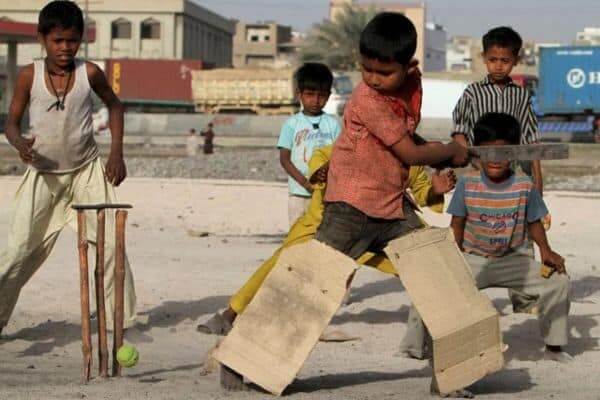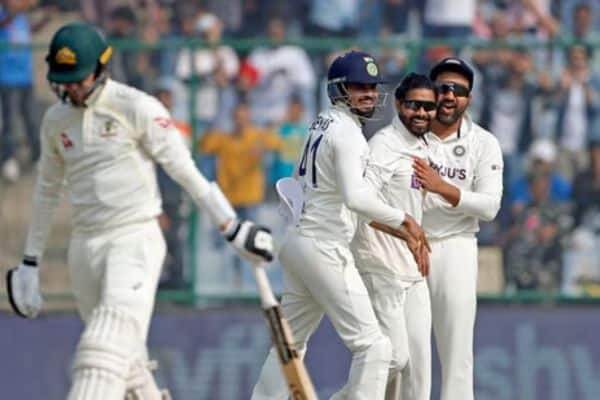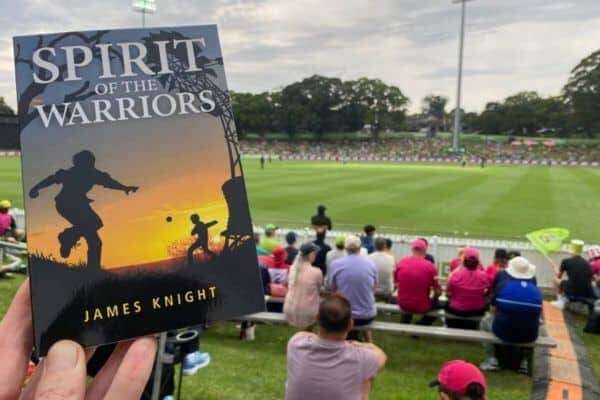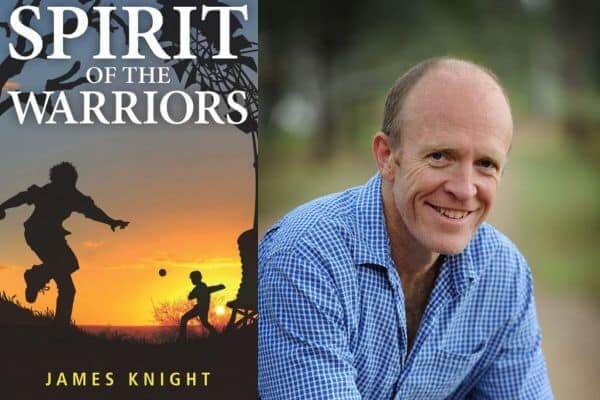In a particularly poignant moment from James Knight’s Spirit of the Warriors, protagonists Jack Riordan and Ajeet Sharma pick up a cricket bat for a swing. As each grasps one end of the bat, their shadows merge to form the image of ‘pylons supporting a road,’ as if they have built a bridge built between them.
Cricket as a bridge between worlds – that’s the central theme of this captivating young adult novel.
“I think there’s a tremendous opportunity to use sport as a way to tell stories and connect people and make them understand the world at large,” Knight tells Indian Link.
Set in a rain-starved town in rural Australia, Spirit of the Warriors is the story of Jack Riordan, the local primary school’s leading cricketer. As he dreams of standing at the crease, hitting Australia’s winning runs in the World Cup, he faces challenges both on the right field (a brooding farmer dad burdened by hard times) and on the left field (the new kid from India who could knock him off his perch as local cricket star).

It’s the perfect backdrop to delve into themes of identity, self-discovery, relationships, and the challenges of growing up and achieving independence.
Of course James Knight has a wealth of experiences to draw on for the purposes of this book. He grew up playing cricket in country Australia himself, and as a sports journalist, he travelled extensively in India, coming to know and love it deeply.
“I first visited India in 1996 as a television reporter covering the World Cup,” James Knight recounts. “It’s not too big a statement to say, India changed my life. I had experiences over there with people and place that made me realise, well, that it’s my second home. So for most of the parts about India that are in the book – the Lotus temple in Delhi, the Oval Maidan in Mumbai, the monsoons, Diwali – I didn’t have to do much research. It was all in here (pointing to his heart and head).”

And so, in a world where many of our youth don’t see themselves represented in books, Knight drew on characters close to his heart, in a sport that’s close to his heart, to tell a story of coming of age.
There’s something special about cricket, he notes, that’s particularly character building.
“Sport in general, is character building as well as character revealing. And I think that actually happened in the Spirit of the Warriors, with the revelation of Jack in particular, and the way Ajeet developed over time as well. But cricket has that distinct advantage over other sports in that the people who play it spend a lot of time together. Quite often with a team, you spend more time not playing the game than you do playing. My fondest memory from cricket is the time we spent after training, just talking. It developed very strong bonds. I still look at that period of my life as being very important in personal growth. Many of the people who hung around with me afterwards to talk, are still my closest friends. Cricket lends itself to giving time to its players, and time is the greatest resource we will ever have, because it’s the seed from which everything grows.” James Knight said.
The impact for young men in particular, can be far-reaching.
“That’s another reason why I wrote Spirit of the Warriors, because I want that cultural understanding, to at least start conversations. You could use the IPL as a very good example of this. Until the IPL came along, players from different cultures and countries rarely ever got the chance to share a dressing room. Now we’ve got this collision of cultures coming together. And what was once cultural understanding, suddenly becomes opportunities to know and grow as both an individual and people together.”
What about India v Australia – why the strong rivalry?

“The 2001 series, when Steve Waugh referred to India as ‘the last frontier’, showed we’ve got an extraordinary development of a contest and at times, conflict, between these nations. Since then, we’ve had some extraordinary series, and some extraordinary individual performances, that have just created a bit of a legend. And this has also coincided with the rise of India socio-geo-politically, and with the rise of IPL. Factor in the personalities who help develop it – the larger-than-life people such as Shane Warne, the once-in-a-generation players such as Sachin Tendulkar, they all came at the right time to help foster this extraordinary rivalry. Ind v Aus is the series I most look forward to now. It really is. And you know, the Harbhajan Singh MonkeyGate issue at the SCG and Siraj-Travis more recently, they’re not a reflection of teams that don’t get on. They’re a reflection of what this contest now means.”
Knight is aware that his book comes at a time when India is suddenly in popular consciousness in this country. “The growth in immigration aside, Australia is realising that India can be an important player on the world stage. And being geographically reasonably close to it, we have to develop that relationship. But on a ground level, we are changing as a national identity, and we’re embracing all these new cultures and ways of life and attitudes and philosophies that will make us better people.”
James Knight’s hope is that his book finds its mark with this strong South Asian demographic, just as much as it does with a broader marginalised demographic, “as in people who don’t necessarily have access to stories – whether they are in country areas, or in Western Sydney, who may not get the same literacy resources that other schools and libraries do.”

His favourite cricket story, though, is a deeply personal one, from 1996. It is one that he has recounted several times on school visits.
“The cameraman and I got into a game of cricket with some street kids [in India]. They were probably about 12, and they followed us back to our hotel. I got them some bottles of water. They turned up again for another game. The following day, they brought me a block of chocolate. ‘I can’t accept that,’ I said. ‘Please, sir, thank you.’ It was their gift for playing with them for two days.”
He sat down with them, cross legged, to share the treat.
“That story that tells me more about cricket, and more about India, than any frontline elite cricket story will ever tell me.”
READ MORE: Off his own bat: Ravi Shastri chats with Holly Ferling





